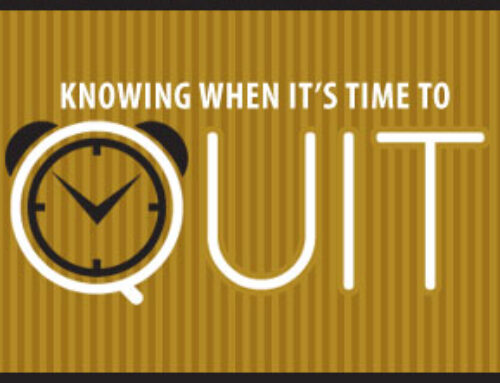Why Overworking Is Bad For Your Health (and Your Career)
 There’s no doubt that technology has simplified the way we carry out our day-to-day routines. While being constantly plugged in can make us feel safe, connected, and in-the-know — both at work and at home — it also means we never really clock out.
There’s no doubt that technology has simplified the way we carry out our day-to-day routines. While being constantly plugged in can make us feel safe, connected, and in-the-know — both at work and at home — it also means we never really clock out.
It’s one thing to pull a long day every once in a while to finish a project or deal with a crisis, but it’s another to routinely stay late at the office or work into the night. That’s chronic overwork — and it can have extremely negative impacts on your health, happiness, and overall quality of life. And, now that multiple offices have embraced remote work, the lines between the end of the workday and the start of personal time can get even blurrier.
Why Overworking is Bad For Your Health
1. It prevents sleep.
Study after study shows that working too much or too late in the day can negatively impact your sleep — whether it’s the resulting stress, staring at the computer screen, or just not having enough time to unwind before hitting the hay.
Chronic sleep debt raises the risk of obesity, heart disease, stroke, and diabetes.
2. Overworking is bad for your heart.
A long-running study of more than 10,000 civil servants in London found that white-collar workers who worked three or more hours longer than a normal, seven-hour day had a 60% higher risk of heart-related problems than white-collar workers who didn’t work overtime.
The link between overworking and heart disease might have something to do with your personality. In fact, the “Type A” tend to be more competitive, tense, time-oriented, and stressed out — which is often intensified by overworking and often associated with a higher risk.
3. It leads to bad habits.
The Finish Institute of Occupational Health published the largest ever study of the correlation between working patterns and alcohol consumption.
They found that 48 hours of work per week was the magic number: When people worked more than 48 hours per week, they were more likely to engage in “increased risky alcohol use.”
Researchers also found that long hours link to bad smoking habits and can also lead to more social media consumption, which can danger your level of stress recovery when you’re not working.
4. More input doesn’t necessarily mean more output.
Robinson explains that most people do their best work between hours two and six of working in a given day. By the end of an eight-hour day, their best work tends to be behind them — and by hour nine, fatigue begins to set in and productivity levels drop.
5. Overworking hinders creativity.
If you want to stay fresh and creative, it’s important to limit your work hours, get a good night’s sleep, and take time off when you feel like your mind is being drained of creative thoughts.
When you do take time off, be sure to keep a notepad or a phone recording app nearby. Sometimes, creative ideas can strike when you’re most relaxed — and you’ll want to take them down somewhere.
6. It makes multitasking harder.
When you’re tired, low on energy, and not primed to pay attention to detail, it will be harder to complete all of your tasks correctly — let alone one of them.
Know When It’s Time to Log Off
Sometimes, working long hours can feel rewarding — even invigorating. Other times, especially when we make a habit out of it, it can make us feel stressed, mad, lonely, and generally unhealthy.
The key is paying attention to how it makes you feel. If it’s interfering with your mental, physical, or emotional help, it may be time to reprioritize.
Thanks for your Wisdom Lindsay Kolowich Cox




